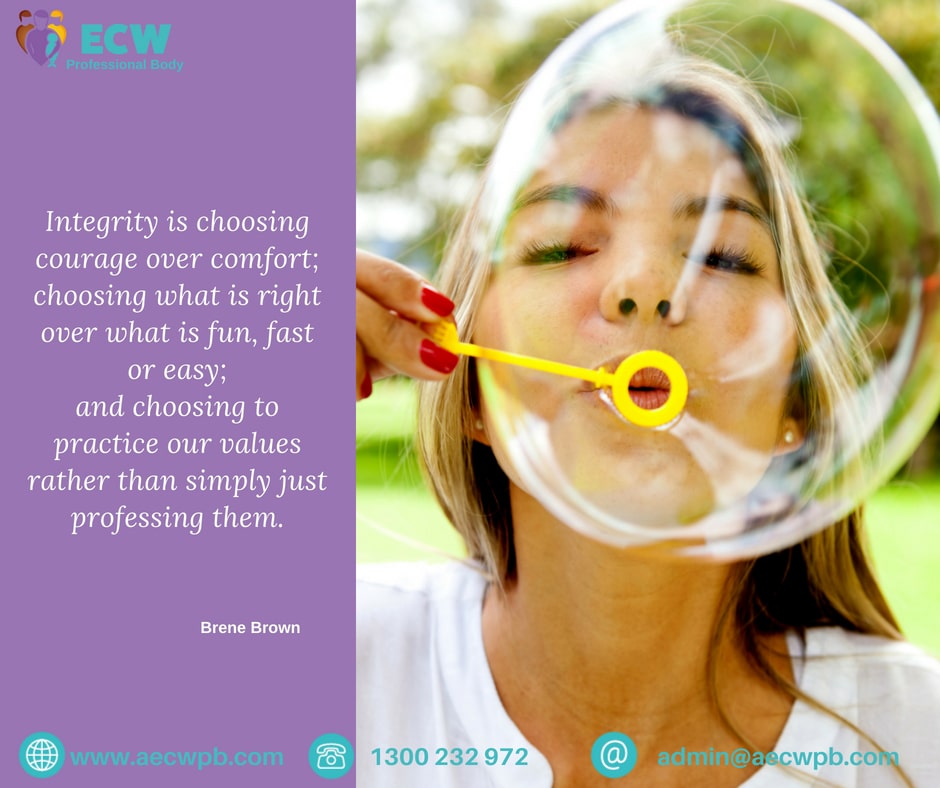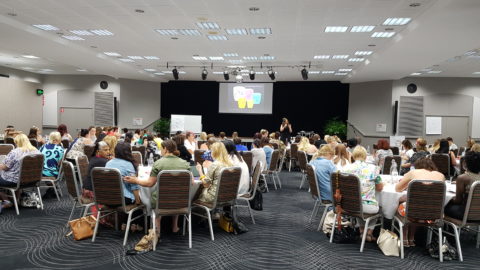Foundations of High Quality
by Olivia Vollbrecht
The Queensland government has released a ‘Qualities and Skills’ you need to be an Educator fact sheet, on the world wide web and I’m delighted to bring it to your attention, if you haven’t seen it already…
Be a good communicator
Be able to communicate with children at their level. Also, develop skills in communicating well with families about their children’s strengths.
Be passionate and authentic
It’s vital to be passionate about what you do and believe in why you’re doing it. Children will know if you love and believe in your job, and will respond well to someone who wants to teach them.
Always persevere
Strong dedication and devotion to your work will lead to great learning outcomes for children.
Be practical and patient but also be willing to take risks
Being practical means you know how to use the resources you have to support children to learn. Being patient is important for working within the early childhood education and care system and working with children and their families.
Your willingness to take risks means that sometimes you’ll look for other solutions-things that might sit a bit outside the normal way of doing things to improve each child’s learning.
Be flexible
Any person working in early childhood education and care, including educator, teacher and leader, needs to deal well with change, whether expected or unexpected and whether positive or challenging.
Respect children and families
In early childhood education and care, it’s so very important to respect each child and their family’s uniqueness. Being aware of and working with the different strengths of each child can make you a more effective educator to support each child to learn in their own way.
Be creative
You’re working with children and that means being able to think outside the square is key to developing and delivering great learning outcomes.
Love learning
You must love to learn. Children will want to learn from someone who are themselves passionate about finding things out. Enthusiasm for learning is absolutely infectious.
Be energetic
An energetic educator will help children stay positive about learning.
Have a sense of humour
Learning should always be fun and laughter can often help children learn.
Be organised
You need to be able to plan well and stay organised. Children want predictable routines and seek interactions from you that promote a positive learning environment.
https://qed.qld.gov.au/earlychildhood/educators/qualities-skills-you-need
I could just kiss it, I love it so much!
What resonates really well with me is how some of these qualities, that are considered to be essential, cannot be taught. You can’t teach authenticity, it is engrained. You can’t teach passion, it is ignited! Let’s face it, there are people in this industry that just shouldn’t be, not everyone is cut out for working with children and families. I feel validated and encouraged by the expectation of the QLD government and hope that individuals, RTO’s, schools, services and families take this on and encourage the mentioned characteristics to infiltrate our sector, with the up and comers but also to increase the accountability of those working with children already.
More talk of authenticity resides in the new documentation (it was there before but I feel like either I’ve got an authenticity literature radar on, or it’s been amped up!) for the revised NQS, released in February 2018.
There is a section (pg. 331) dedicated to ‘Exceeding NQS Theme Guidance,’ it supports services and educators to achieve what should be the highly sought after rating. It so simply states:
“To achieve a rating of Exceeding NQS for any standard, the Exceeding themes need to be demonstrated in service practice for that standard
- Practice is embedded in service operations
- Practice is informed by critical reflection
- Practice is shaped by meaningful engagement with families and/or the community.”
In my opinion, a service can’t fully operate to the full intention of the mentioned themes if their team of individuals do not possess the characteristics and qualities mentioned above.
Page 333 of the Guide to the National Quality Standards says,
“Respect, trust and collegiality are valued so that all members of the service team are able to raise concerns, ask difficult questions, challenge the way things are currently done and create change in the approach to practice across the service.”
At Bindarra, we support a healthy culture of questioning. We believe that working towards high quality practices is continuous and it’s important to foster opportunities to respectfully question each other in decisions pertaining to the children.
We do this with just a few ground rules:
As a questioner, (in the moment) consider the current situation the Educator is in, and that the most appropriate method of communication may be to ask the Educator if they require your support. Try to avoid asking leading questions such ask, ‘Don’t you think if you did it this way, this would be best.’ But rather consider, ‘I’m curious as to why you __________.’ Sometimes you may have important information to share with Educators to help them with their decision making, such as, ‘As anyone made you aware that ____________.’
As a questioner, (out of a moment) approach your colleague respectfully, clearly stating that your intentions factually represent the situation that you would like to enquire about without any bias or judgement. This allows your team member the opportunity to view how you represented the situation and include any missing facts that may shed some light and therein solve your query. Use some of the tactics already listed above.
As the questionee, do not let your ego or misinterpretation of your colleague’s intentions detract from what may be the best course of action for the child/ren.
These sorts of conversations are often the birth of a meaningful critical reflection, for the individual and or the service as a whole. When asked to be accountable for actions we are forced to ask ourselves, ‘why do we do what we do?’ When we foster a culture of allowing each other to question our practices this process of critical reflection becomes more frequent and thus on the path for that exceeding rating AKA being awesome people and creating awesome places for children and families.
“Failure can become our most powerful path to learning if we’re willing to choose courage over comfort.”
Brene’ Brown

Images follow a Bindarra Team meeting










